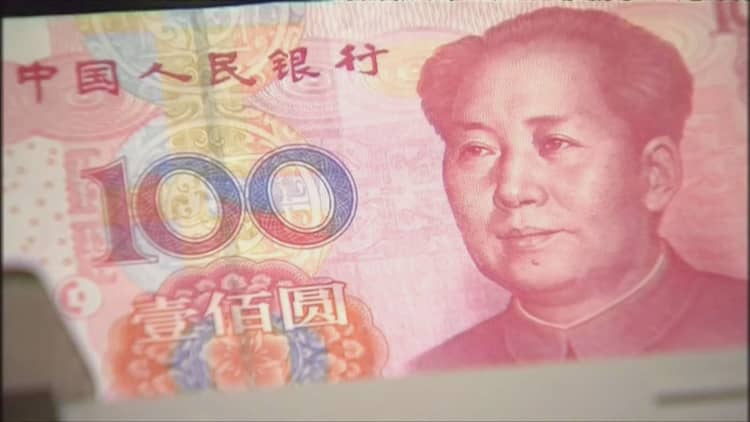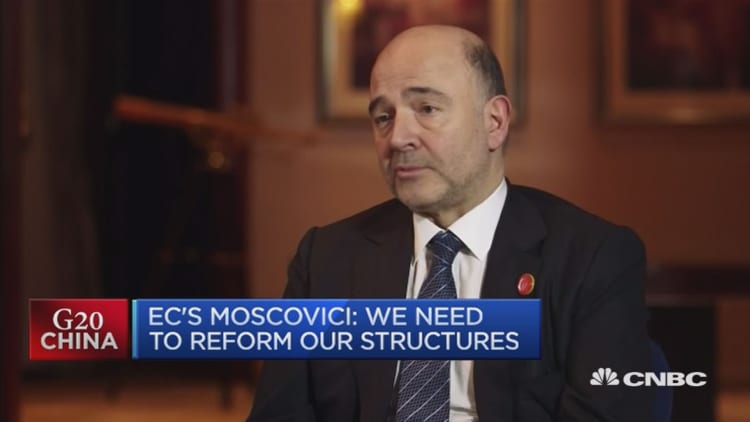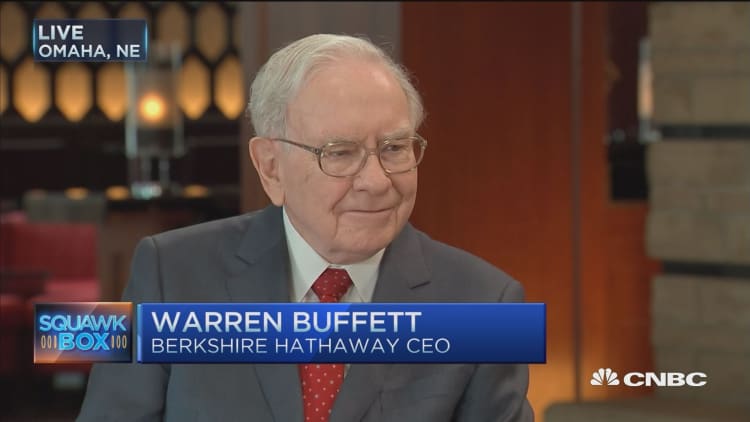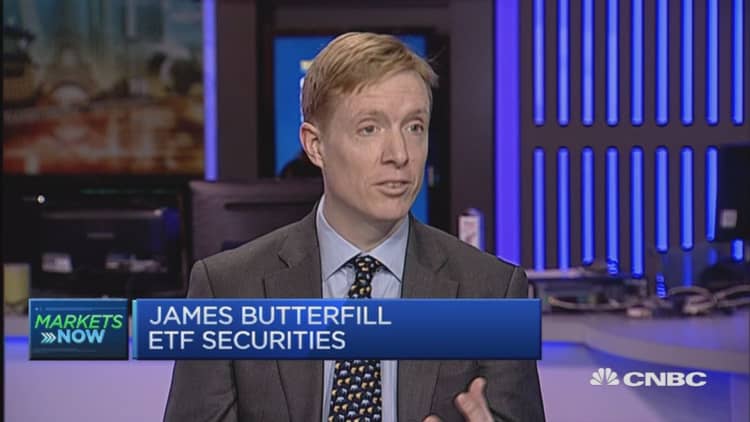



European equities closed mostly higher Monday despite a turbulent trading day as investors cheered on the jump in oil prices and mining stocks, and shook off the mixed news coming from China and individual businesses.
The pan-European STOXX 600 finished up 0.7 percent provisionally, despite coming under pressure during the session.
London's FTSE 100 ended roughly flat, while France's CAC rose 0.9 percent. Germany's DAX recovered from earlier sharp losses, to close 0.2 percent lower.
European markets
The People's Bank of China (PBoC) cut its so-called reserve requirement ratio (RRR) by 0.5 percentage points meaning banks will be required to hold less reserves in the hope that the excess capital will find its way into the real economy.
"Equities have understandably spiked higher on news that China has cut its bank RRR, following further depreciation in the renminbi currency overnight which shows its intention to do more," Mike van Dulken, head of research at Accendo Markets, wrote in a note.
"However, the gains may have already run their course with a remarkably muted reaction compared to what we have come to expect from stimulus announcements. Does this signal waning faith in central bank fire power? Or bigger fears over China?," Dulken added.
A number of metal prices rallied on the news, given China is a key buyer of metals, and this sent stocks in the basic resource sector higher, up over 3 percent.
Steelmaker ArcelorMittal ended 8.8 percent higher, while Anglo American shot up some 6.6 percent. Randgold Resources closed in the green thanks to a higher gold price on Monday.
The turbulent trade on Monday came after a good performance for stocks last week on the back of a G-20 finance ministers meeting in Shanghai where investors hoped to get reassurance about the state of the global economy and further policy steps to spur growth. But analysts said the lack of solid action from the meeting was disappointing, which led to a lower open on Monday.
Meanwhile in Europe, inflation for the euro zone turned negative in February, coming in at -0.2 percent, according to statistics agency Eurostat. This development could bolster the European Central Bank's case to deliver another round of policy easing at its next meeting in March.
In Asia, Chinese markets tumbled Monday. The recovery in China's property market may be driving some of the stock sell-off, Dow Jones reported, saying capital may be fleeing the stock market as interest in home buying increases. Analysts expect some rocky trading this week amid a deluge of economic data in the region.
In the U.S., markets were slightly higher as a rise in oil prices helped offset concerns surrounding China. Oil prices bounced back on Monday, with international benchmark, Brent up over 2 percent at $36.15, after hopes rose following news that Saudi Arabia, would work with other producers to reduce market volatility in the oil sector. U.S. crude was also sharply higher, up around $33.62.
This jump in prices boosted the sector, with some oil and gas stocks outperforming, including Seadrill which closed almost 15 percent higher.
Banks under pressure
The banking sector was once again in focus after rallying last week, with negative news weighing on the sector. Analysts said banks are facing a barrage of problems which has sparked a sell-off in the sector.
"There's ongoing pressure at net interest margin, that's the core of the banking industry. If that is not going away, they have to find other areas to earn money," Sonja Laud, investment director of the global multi-asset group at Baring Asset Management, told CNBC on Monday.
"You are taking away the natural growth environment and you still confront them with the burden of extra capital, regulatory change, NPLs (non-performing loans) in some cases."
On Monday, a number of banks closed in the red, with Banca Monte dei Paschi di Siena off 4.4 percent, while Banca Popolare di Milano closed lower too. Bernstein cut its price target for HSBC, which closed over 1.5 percent down. The sector, however, closed higher.
Morrisons surges on Amazon deal
In individual company news, shares in Morrisons surged almost 6 percent after the British supermarket chain struck a deal with Amazon to supply the e-commerce giant with fresh and frozen food for its U.K. grocery delivery service.
Morrisons also entered an agreement with Ocado in which it'll be able to sell its groceries through the delivery service. However, Ocado shares tumbled to the bottom of indexes, down over 7.5 percent.
On the earnings front, Postnl finished 3 percent higher, after the package delivery firm posted a 21 percent rise in core earnings for its fourth quarter.
In other news over the weekend, Ireland's voters decisively rejected the country's coalition government but picked no clear alternative, setting the stage for a variety of possible coalitions and potentially a second election.



